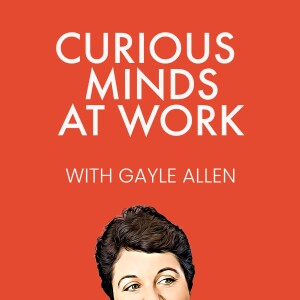
CM 060: Stuart Firestein on How Breakthroughs Happen
 2016-10-31
2016-10-31
Download
Right click and do "save link as"
How do breakthroughs happen? Not how we think.
Movies, books, and articles, constrained by time and word limits, often leave out the realities -- the messy work, filled with dead ends, abandoned questions, and accidental discoveries. That is what Stuart Firestein, Professor of Biological Sciences at Columbia University, wants to change.
He believes that the roles ignorance and failure play in the discovery process are vastly underappreciated, so much so that he has written two books about them, Ignorance: How It Drives Science, and Failure: Why Science is So Successful. An advisor for the Alfred P. Sloan Foundation program for The Public Understanding of Science, Stuart shares insights from his own work as a successful researcher and scientist and from those of his peers, as well as scientific philosophers and historians.
Insights from our interview:
Knowledge and facts are important insofar as they help us ask better questions
Conscious ignorance offers a useful playground for discovery
The messy process of science and discovery is where the value lies
The disconnect between scientific textbooks and courses and actual science
The innovative course he teaches that helps students gain a scientific mindset
What it is that makes a problem interesting
How scientists, researchers, and creatives look for connections
Why failure can be useful even if it never leads to an eventual success
The fact that the more expert a person is the less certain they will be
How systems limit innovation
Why we need better tools for assessment and evaluation in schools
Why we need feedback tools that are more diagnostic and less judgmental
Why he worries most about people who dislike or are disinterested in science
Why he sees his lab as a cauldron of curiosity
How writing books requires a different way of looking at things
How philosophy and history can impact science in an interactive way
Episode Links
Stuart Firestein
@FiresteinS
Be Bad First by Erika Andersen
Is the Scientific Paper a Fraud by Peter Medawar
James Clerk Maxwell
Principles of Neuroscience
Eric Kandel
Kenneth Rogoff
D.H. Lawrence
Do No Harm by Henry Marsh
MCAT
NIH
NSF
Sidney Brenner
Michael Krasny
Karl Popper
Thomas Kuhn
Isaiah Berlin
If you enjoy the podcast, please rate and review it on iTunes. For automatic delivery of new episodes, be sure to subscribe. As always, thanks for listening!
view more
More Episodes
CM 068: Michelle Segar on Exercise for Life
 2016-12-26
2016-12-26
 2016-12-26
2016-12-26
CM 065: Tim Wu on Reclaiming Our Attention
 2016-12-05
2016-12-05
 2016-12-05
2016-12-05
CM 062: John Maeda on Great Design
 2016-11-14
2016-11-14
 2016-11-14
2016-11-14
CM 061: Susan David on Emotional Agility
 2016-11-07
2016-11-07
 2016-11-07
2016-11-07
CM 059: Erika Andersen on Getting Good Fast
 2016-10-24
2016-10-24
 2016-10-24
2016-10-24
0123456789101112131415161719
Create your
podcast in
minutes
- Full-featured podcast site
- Unlimited storage and bandwidth
- Comprehensive podcast stats
- Distribute to Apple Podcasts, Spotify, and more
- Make money with your podcast
It is Free
- Privacy Policy
- Cookie Policy
- Terms of Use
- Consent Preferences
- Copyright © 2015-2024 Podbean.com




